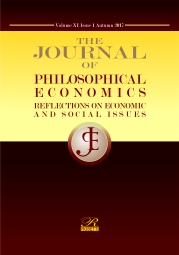Methodological Monism in Economics
Methodological Monism in Economics
Author(s): Tamás DusekSubject(s): Philosophy, Social Sciences, Economy, Special Branches of Philosophy, Sociology, Philosophy of Science, Social Theory, Socio-Economic Research
Published by: Editura Rosetti International
Keywords: methodology of economics; methodological monism; methodological pluralism;
Summary/Abstract: The aim of the paper is to give an outline of the relation between general epistemology and the epistemology of economics. The epistemology of economics can be treated starting from the ‘general epistemology of science’ and from the subject of the investigation, namely the problems of economics itself. Starting from the general or subject-independent epistemology one can make an attempt to adapt to economics various methodological approaches which were practically created to take only the subject of physics or mathematics into consideration. The characteristic feature of this mentality is often methodological monism, a doctrine which implicitly or explicitly states the unity of epistemology in all disciplines. In methodological writings of economics, beside the supporters of some general epistemological viewpoints, there are serious critics of them on behalf of methodologists who start their researches based on economics.Methodological pluralism does not reject the importation of methodological ideas from other branches of knowledge in an aprioristic way. However, the uncritical adoption of the methodology of physical sciences or ‘general’ methodology leads to the realm of inadequacy and dogmatism. According to methodological pluralism, every research has to choose its methods and methodology conforming to the nature of its own problems.The theoretical consequences of methodological monism are not always obvious. Inappropriate methodology can lead to inappropriate theories and inappropriate practical decisions. The negative consequences of formalism will be illustrated by some spatial economic issues in the field of money and price theory, such as the empirical empty doctrine of purchasing power parity and the theory of optimal currency areas. Since neoclassical mainstream is monist, therefore the critique of monism is at the same time the critique of the method of neoclassical mainstream.
Journal: Journal of Philosophical Economics
- Issue Year: I/2008
- Issue No: 2
- Page Range: 26-50
- Page Count: 25
- Language: English

